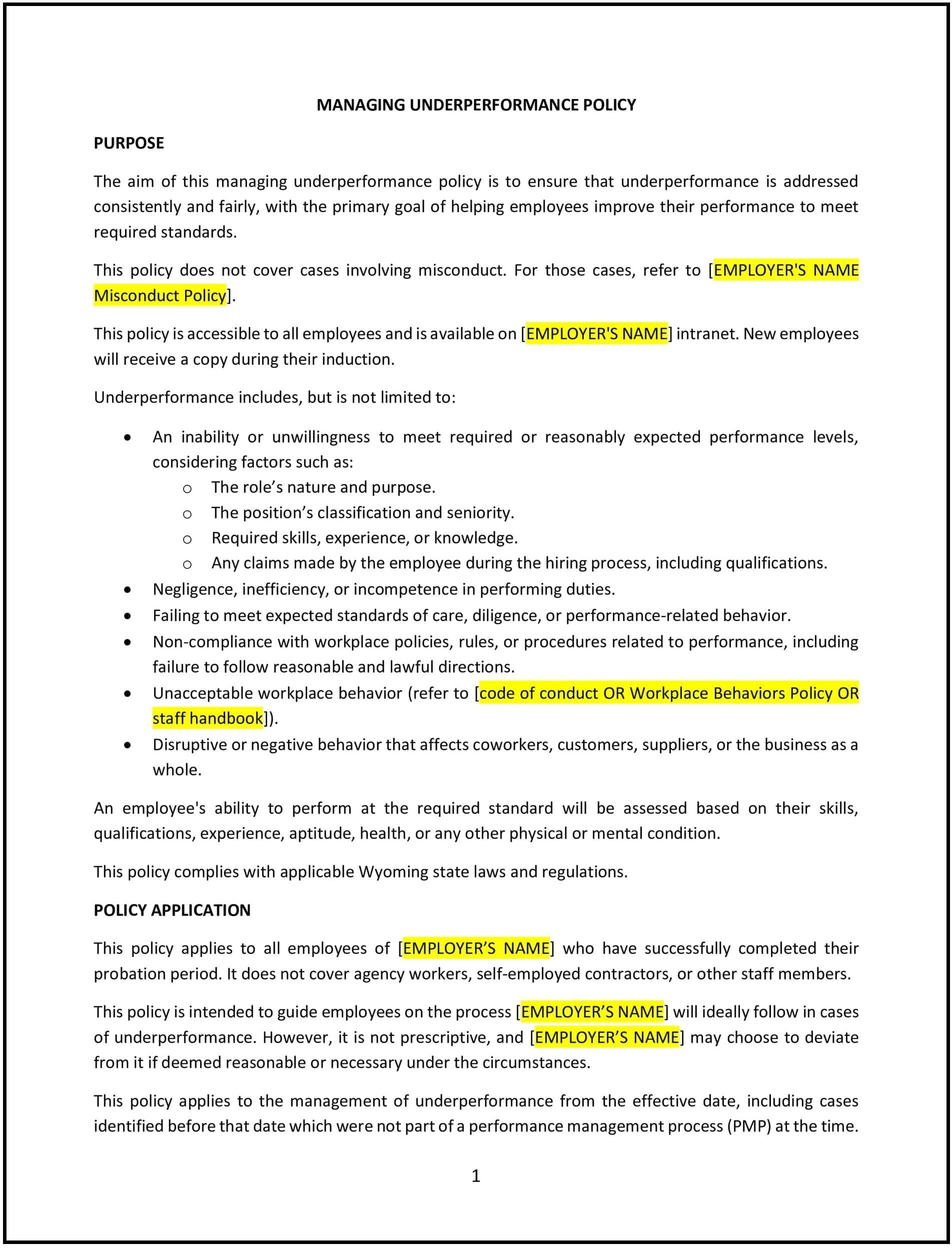Managing underperformance policy (Wyoming): Free template
Got contracts to review? While you're here for policies, let Cobrief make contract review effortless—start your free review now.

Customize this template for free
Managing underperformance policy (Wyoming)
In Wyoming, a managing underperformance policy helps businesses address and improve employee performance issues in a structured, fair, and consistent manner. This policy provides employees with clear expectations, support, and opportunities to improve while maintaining compliance with state and federal employment laws.
This policy outlines the process for identifying, communicating, and resolving underperformance issues, fostering a culture of accountability and growth.
How to use this managing underperformance policy (Wyoming)
- Define underperformance: Clearly outline what constitutes underperformance, such as failure to meet job expectations, deadlines, or quality standards.
- Establish communication guidelines: Include steps for supervisors to address performance issues, such as holding one-on-one meetings and providing constructive feedback.
- Outline performance improvement plans (PIPs): Provide a framework for creating individualized plans that set specific goals, timelines, and support measures for employees to improve their performance.
- Specify documentation requirements: Detail the need to document all conversations, feedback, and actions taken to address underperformance.
- Support compliance: Align the policy with Wyoming labor laws and federal regulations, ensuring fair treatment and minimizing legal risks.
Benefits of using a managing underperformance policy (Wyoming)
A managing underperformance policy provides several advantages for Wyoming businesses:
- Enhances productivity: Helps employees address performance gaps, improving overall team efficiency.
- Supports compliance: Supports adherence to employment laws, reducing the risk of disputes or wrongful termination claims.
- Encourages growth: Provides employees with clear feedback and support, fostering professional development.
- Improves morale: Demonstrates fairness and transparency in addressing performance issues, building trust among employees.
- Adapts to workforce needs: Reflects Wyoming’s unique business environment and workforce challenges, such as small teams or rural settings.
Tips for using a managing underperformance policy (Wyoming)
- Be proactive: Address performance issues as soon as they arise to prevent escalation.
- Provide regular feedback: Foster a culture of continuous feedback to help employees understand expectations and improve incrementally.
- Ensure fairness: Apply the policy consistently to all employees to avoid perceptions of favoritism or bias.
- Offer training: Provide managers with training on effective communication, coaching, and documentation techniques.
- Review regularly: Update the policy to reflect changes in laws, workplace dynamics, or organizational goals.